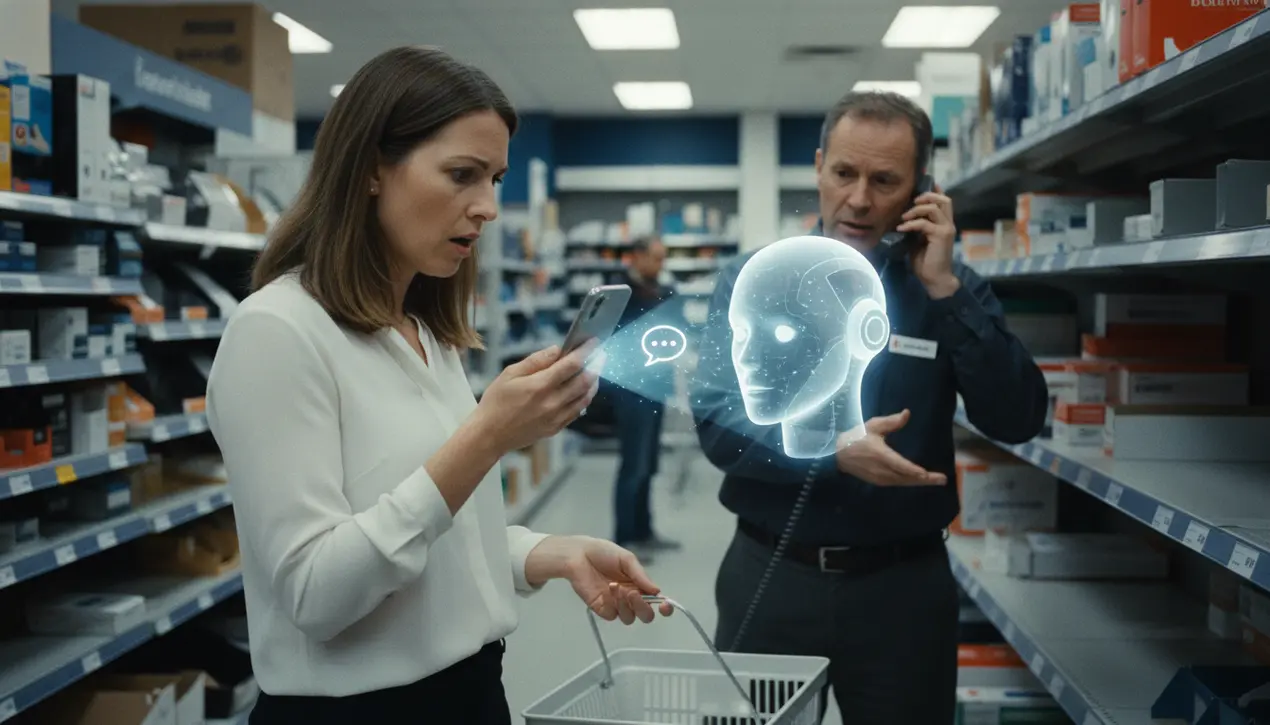
AIroboticsHuman-Robot Interaction
Google Can Now Robocall Stores for You to Ask If They Have What You Want
AN
Andrew Blake
2 hours ago7 min read
In a move that feels like it was pulled straight from a near-future sci-fi novel, Google is now deploying its AI to make phone calls to local stores on your behalf, essentially outsourcing the social anxiety of checking product availability to a polite, synthetic voice. This isn't just a simple script; the technology, an evolution of the Duplex system first unveiled with bated breath back in 2018, is designed to navigate the unpredictable, often frustratingly human terrain of a retail phone conversation.It can understand mumbled responses, decipher background noise, and handle the unexpected 'let me check in the back' with a patience most of us lost years ago. The implications ripple far beyond mere convenience.For the small business owner, this represents a double-edged sword: a potential stream of qualified, pre-vetted customers walking through the door, but also the eerie, uncanny valley sensation of conducting business with a machine that mimics human hesitation and filler words like 'um' and 'ah' with unsettling accuracy. From a sociological perspective, it's a fascinating capitulation to the modern aversion to simple telephonic interaction, a skill once deemed essential now being systematically automated.What does it mean for our social fabric when we delegate even the most basic forms of inquiry to an algorithm? Critics will rightly point to the potential for deception, questioning the ethics of an AI that doesn't immediately announce its non-human nature, while privacy advocates will scrutinize the data-hungry nature of a service that intimately learns your shopping habits and vocal cadences. Yet, for the harried parent trying to find a specific toy or the contractor sourcing a rare part, it’s a godsend, a digital assistant that actually assists with a real-world task.This development sits at the confluence of several major tech trends: the maturation of natural language processing, the relentless push for hyper-local commerce, and the normalization of human-AI interaction. It’s not just about asking if a store has a particular item in stock; it’s a foundational step towards a world where our digital agents interact seamlessly with the physical world's legacy systems—including people on telephones. The road ahead is paved with questions about regulation, transparency, and the very definition of communication, but for now, Google has effectively made your social anxiety a robot's problem, and the robot is apparently taking the job very, very seriously.
#featured
#Google
#robocalls
#AI assistant
#automation
#customer service
#voice AI
#retail
Stay Informed. Act Smarter.
Get weekly highlights, major headlines, and expert insights — then put your knowledge to work in our live prediction markets.
Related News
Comments
Loading comments...
© 2025 Outpoll Service LTD. All rights reserved.